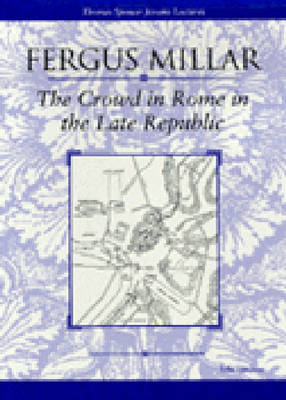It has often been thought that Roman politics was dominated by a governing class, and it has sometimes been presumed that the Senate was like a parliament and could legislate. But while the Senate could indeed debate public matters, advise other officeholders, and make some administrative decisions, legislation was beyond its ability. An officeholder who wanted to pass a law had to step out of the Senate-house and propose it to the people in the Forum. Rome was a remarkable sort of democracy.
There were nearly a million adult male voters in the time of Cicero, but there were no constituencies, and no absentee ballots. To exercise their rights, voters had to come in person to Rome and to meet in the Forum. Fergus Millar takes the period from the dictatorship of Sulla to Caesar's crossing of the Rubicon and shows how the politics of the crowd was central to the great changes that took place year after year.
- ISBN13 9780472088782
- Publish Date 30 April 2002 (first published 22 June 1998)
- Publish Status Active
- Publish Country US
- Imprint The University of Michigan Press
- Format Paperback
- Pages 256
- Language English
